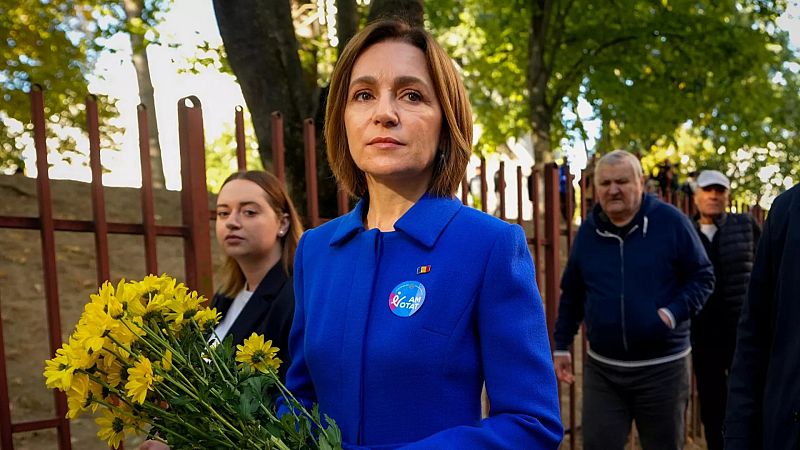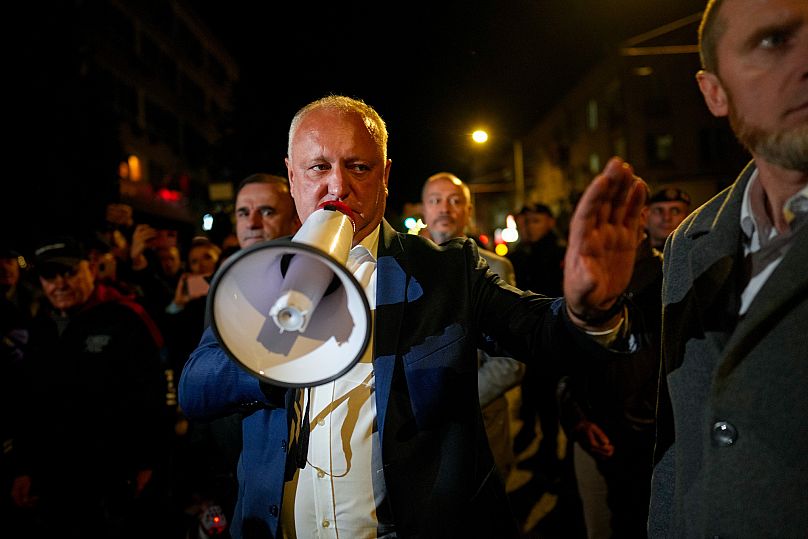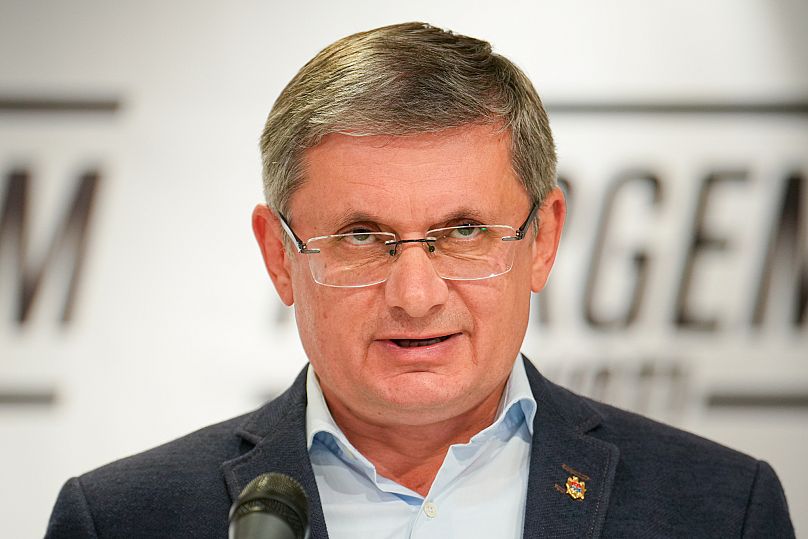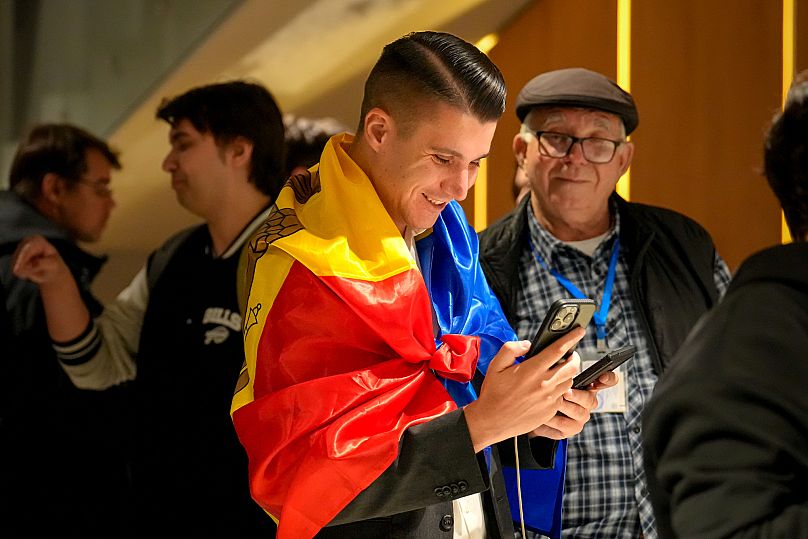Moldova's pro-EU party wins high-stakes parliamentary election

Moldova's pro-European party led by President Maia Sandu claimed a clear lead and a new majority in parliamentary elections on Sunday seen as pivotal for the country's future in the European Union.
With nearly all polling station reports counted, electoral data showed the pro-EU Party of Action and Solidarity, or PAS, had 50.1% of the vote, while the pro-Russian Patriotic Electoral Bloc has 24.2%.
The Russia-friendly Alternativa Bloc came third, followed by the populist Our Party. The right-wing Democracy at Home party also won enough votes to enter parliament.
Electoral data indicates PAS will hold a clear majority of about 55 of the 101 seats in the legislature. A proposed government needs parliamentary approval.
One pro-Russian opposition leader, Igor Dodon, called on his supporters to attend a rally outside Moldova's parliament building to consolidate victory before results started coming in.
Eventually, it became clear that Sandu's party stood to hold a majority of legislative seats.
Moldova's large diaspora looked likely to play a decisive role in the final outcome.
In last year’s presidential runoff — which was also viewed as a choice between East and West — a record number of 327,000 voters cast ballots abroad, more than 82% of whom favoured Sandu.
After casting her ballot on Sunday, Sandu reiterated long-held claims that Russia “massively interfered” in the election, saying she voted “to keep the peace” and insisted her country’s future lies within the EU.
Bomb scares
In a sign of how tense the vote had become, Moldovans face multiple allegations of irregularities as they cast their ballots.
Moldova's Ministry of Foreign Affairs said bomb threats had targeted polling stations in Romania, Spain, Italy and the US.
Police detained three people suspected of being from the security services in Moldova’s pro-Russian breakaway region of Transnistria, who were allegedly planning to cause “mass destabilisations and disorder."
“They are alleged leaders responsible for coordinating, monitoring and logistically supplying the groups,” police said, adding that they found pyrotechnics and flammable materials the suspects intended on using to cause panic and chaos.
Sandu said in a Facebook address as the vote was underway that the authorities also had multiple reports of voters being illegally transported to polling stations abroad, “obviously in exchange for money,” and cases of blank ballots being removed from polling stations so they could later “be reintroduced already stamped.”
Igor Grosu, the leader of Party of Action and Solidarity, said after polls closed that “Russia’s attempts to hijack the electoral process have been huge” and that state institutions made efforts to ensure the security and integrity of the voting.
Russia has repeatedly denied meddling in Moldova and dismissed the allegations last week as “unsubstantiated.” Dodon, whilst casting his vote, dismissed claims of "massive interference."
Last week, Moldova's Prime Minister Dorin Recean warned that Russia was spending millions to "take power" in the elections through large-scale vote buying schemes and thousands of cyber attacks on critical government infrastructure.
Days before the vote began, police carried out hundred of raids detaining scores of people allegedly trained in Serbia planning to cause "mass riots" and destabilise the country.
Sandui called the vote Moldova's "most consequential election."
"Its outcome will decide whether we consolidate our democracy and join the EU, or whether Russia drags us back into a grey zone, making us a regional risk," she wrote in a post on X.
Today




